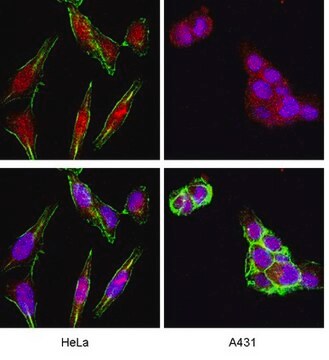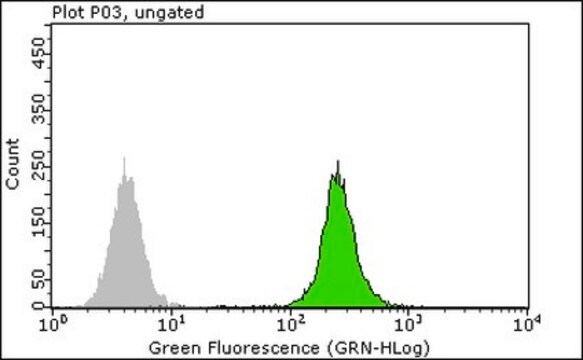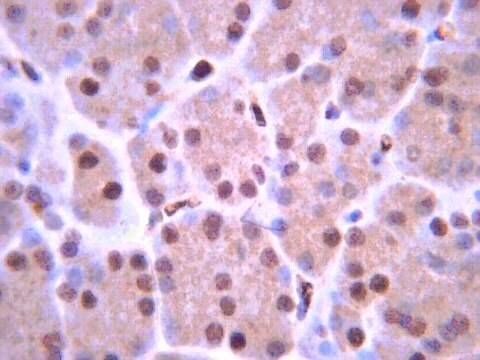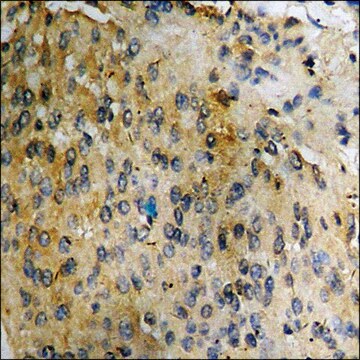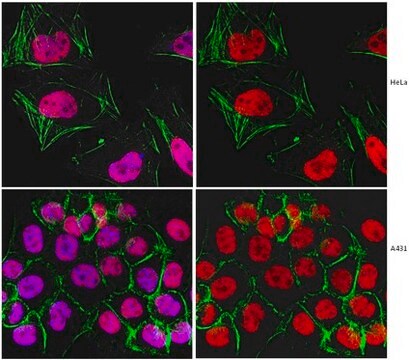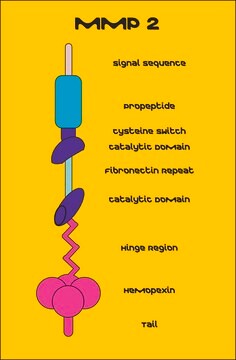MAB4356
Anti-DPPA-2 Antibody, clone 6C1.2
clone 6C1.2, from mouse
Synonym(e):
Pluripotent embryonic stem cell-related gene 1 protein, developmental pluripotency associated 2
About This Item
Empfohlene Produkte
Biologische Quelle
mouse
Qualitätsniveau
Antikörperform
purified antibody
Antikörper-Produkttyp
primary antibodies
Klon
6C1.2, monoclonal
Speziesreaktivität
mouse
Methode(n)
western blot: suitable
Aufnahme
sample type: mouse embryonic stem cell(s)
Isotyp
IgG2aκ
Versandbedingung
wet ice
Posttranslationale Modifikation Target
unmodified
Angaben zum Gen
mouse ... Dppa2(73703)
Allgemeine Beschreibung
Spezifität
Immunogen
Anwendung
Stammzellforschung
Pluripotente Stammzellen & Stammzellen der frühen Entwicklungsphase
Qualität
Western Blotting: Recommended working concentration is 2 µg/mL.
Zielbeschreibung
Physikalische Form
150 mM NaCl with 0.05% sodium azide.
Lagerung und Haltbarkeit
Sonstige Hinweise
Haftungsausschluss
Sie haben nicht das passende Produkt gefunden?
Probieren Sie unser Produkt-Auswahlhilfe. aus.
Lagerklassenschlüssel
12 - Non Combustible Liquids
WGK
WGK 1
Flammpunkt (°F)
Not applicable
Flammpunkt (°C)
Not applicable
Analysenzertifikate (COA)
Suchen Sie nach Analysenzertifikate (COA), indem Sie die Lot-/Chargennummer des Produkts eingeben. Lot- und Chargennummern sind auf dem Produktetikett hinter den Wörtern ‘Lot’ oder ‘Batch’ (Lot oder Charge) zu finden.
Besitzen Sie dieses Produkt bereits?
In der Dokumentenbibliothek finden Sie die Dokumentation zu den Produkten, die Sie kürzlich erworben haben.
Unser Team von Wissenschaftlern verfügt über Erfahrung in allen Forschungsbereichen einschließlich Life Science, Materialwissenschaften, chemischer Synthese, Chromatographie, Analytik und vielen mehr..
Setzen Sie sich mit dem technischen Dienst in Verbindung.
